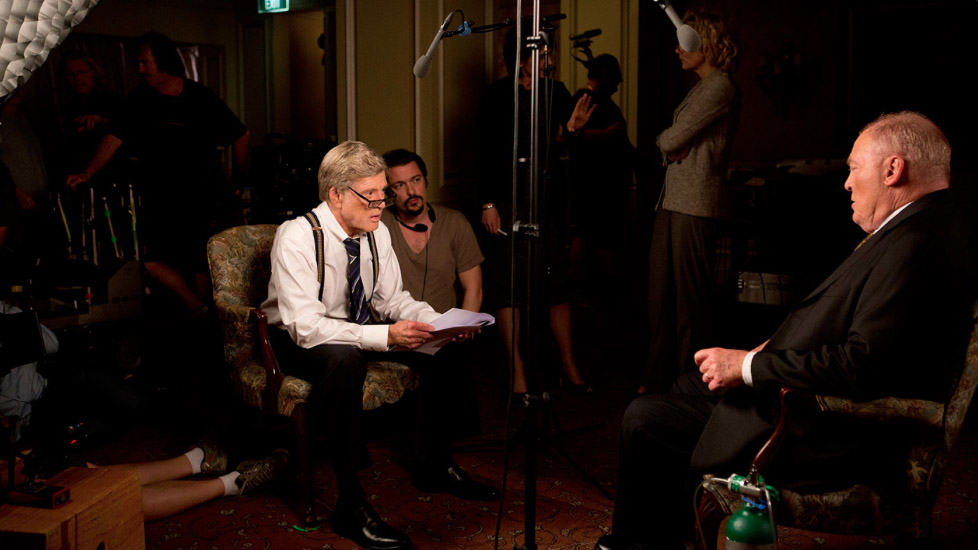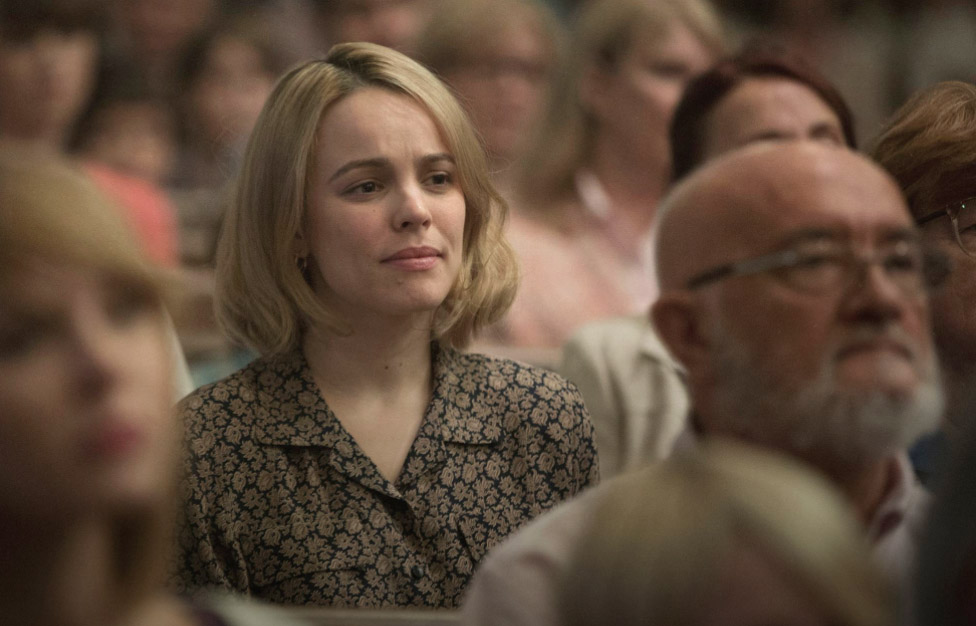“SPOTLIGHT”
If ever there was a reminder of how important journalism is and how it must remain a part of our daily lives, “Spotlight” is it. In our age of 140-character Tweets, cranked out news blurbs and the fact that most people usually find their news on Facebook, it is easy to forget that there was a time, not long ago, when months-long investigations took place and the results reverberated throughout society in pieces of writing that far exceed what people are generally willing to read (or watch) today.
In many ways, “Spotlight” is a sort of painful farewell to those days, but it nonetheless remains a bittersweet reminder that journalism—though it has been chopped up and repackaged into Tweet-sized capsules for easy digestion—often has an earth-shattering impact.
Like a good piece of investigative journalism, “Spotlight” opens with a look at the past; the first signs of trouble appear when a Catholic priest ends up in a police station for the molestation of a child. The arrest, however, is kept secret by the Church in attempt to maintain face. More accusations come out and are quickly brushed under a rug of concealment that the Catholic Church spends years making. Picking up in 2001, reporters at the Boston Globe notice a thread sticking out from that same rug and, as their job entails, they start to explore, follow and pull on this thread. What is revealed is a massive cover up of hundreds of incidents involving Catholic priests, not just in Boston, but around the world.
“Spotlight” continues its investigative storytelling method by laying out the facts. While it isn’t concerned with its characters — though they are fascinating and memorable — the film is more attentive to its pacing, which results in a deliberately structured movie that never fails to be intriguing as subtle revelations hit with the power of a sledgehammer. Director Tom McCarthy handles these moments with great talent, though it’s his handling of the highly sensitive subject matter that really deserves commendation, given that he never minimizes any of the real life tragedies the survivors faced.
Leading the investigation is a group of excellent actors firing on all cylinders. Mark Ruffalo, Michael Keaton, Rachel McAdams and Brian d’Arcy James prove to be an exceptional group of actors who never try to take center-stage as they each deliver solid, thoughtful performances.
There is a moment in “Spotlight” when the audience sees the exterior of the Boston Globe building and right next to it is a billboard advertising AOL. It is a bit tongue-in-cheek, but there’s no denying how much the times have changed. “Spotlight” honors those times and those who fought to make the truth apparent despite so much censorship, cover-up and conspiracy—it is one of the most important films of the year.
“TRUTH”
One of the main duties of a journalist is to be a watchdog for society. We report what we see, detail facts, do our research and only when we are sure that what we have is the truth do we send it out. Oftentimes, journalists don’t attack or defend an idea, but instead relay facts to let the reader decide on a stance. “Truth” plays on this notion as it recounts the events surrounding the downfall of Dan Rather and the controversial 60 Minutes report that raised questions regarding President Bush’s military service. While the film does raise intriguing questions, it points its finger all too blatantly at CBS.
Following Mary Mapes (Cate Blanchett), Dan Rather (Robert Redford) and their hodge-podge team comprised of Dennis Quaid, Elisabeth Moss and Topher Grace, “Truth” starts off by asking tough questions about Bush and his military service, even making the audience wonder whether or not he reported for duty. However, it proceeds to devolve into an attack on the media—specifically CBS. Given that the film is adapted from the memoir written by Mapes—who was subsequently fired from CBS in the aftermath of the report—there is a clear bias in reporting the facts.
Controversies aside, “Truth” succeeds in building a likable friendship between Mapes and Rather, as Blanchett and Redford both give excellent performances. Aside from these two leads, however, the supporting cast could’ve benefited from more attention. Blanchett is the standout, showing us a fully formed, realistic character despite an underutilized supporting cast. Redford is also admirable, giving the audience a likable portrayal of the fabled newscaster.
So, who is to blame for the inaccurate reporting, or the supposedly forged documents? First, it is the sources, given that they admitted to lying and providing false information to the press, the focus then turns to the reporters who proceed to place the blame on the higher-ups at CBS. It is a mess of playing the blame-game that doesn’t really get at the truth of the matter, but instead leaves everyone upset with everyone else, never coming to terms with what happened.
There is a lot of bitterness in “Truth,” whether it is warranted or not. It is mostly well-acted and it raises heavy questions that audience members must answer for themselves. Ultimately, the film falls short of its potential because of its abundance of finger pointing and bland supporting cast. “Truth,” like any well-written journalistic story, would be a better film if it paid greater attention to the facts and less attention to finding someone to blame.
Scott may be reached at sjohnson@su-spectator.com










